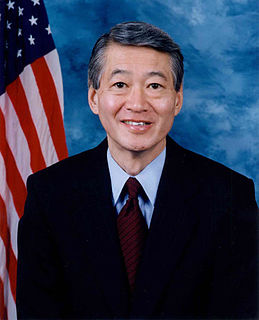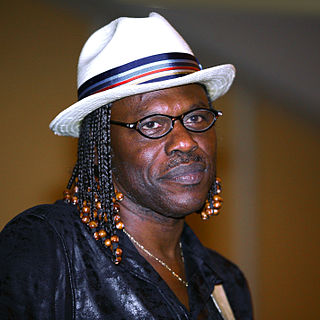A Quote by Kevin Spacey
If you look back through history in the United States, there have been very few landslide elections. Half the country always voted for someone else.
Related Quotes
By the end of the 1960s, the United States owned more than half of the Indian rupee money supply, and that had been acquired through food aid. So I think it's very interesting to see the very long history of how sovereignty and food go together. When some countries remove another country's ability to feed itself, it is a very powerful tool. Imperialist countries, like the United Kingdom, like the United States, have used it for centuries.
Liberals say this over and over and over again to hide the actual history, which is why I go through the specifics on the big segregationists in the United States Senate, the ones who signed the Southern Manifesto and the ones who voted against the 1964 Civil Rights Act. There's a panoply of issues to consider. The first time they objected to the Federal government doing something was when it came to civil rights legislation. This is in stark contrast to the very few Republicans who voted against the '64 Civil Rights Act.
Never mind that from the 1600s until the late twentieth century the population the United States was 85% white, 12% black, and there have been changes demographically in the United States since the days of its founding. So they're trying to tell you that the United States' greatness happened because of diversity. Well, go back and look at the days the country was founded, and they do. When they do that, they see how racist and bigoted this country was. they see the seeds for bigotry and racism and discrimination were sown at the founding, is how it's now taught.
In the Islamic world, the U.S. is seen in two quite different ways. One view recognizes what an extraordinary country the U.S. is.The other view is of the official United States, the United States of armies and interventions. The United States that in 1953 overthrew the nationalist government of Mossadegh in Iran and brought back the shah. The United States that has been involved first in the Gulf War and then in the tremendously damaging sanctions against Iraqi civilians. The United States that is the supporter of Israel against the Palestinians.
When I'm not governing my country any more, I'll go back to taking care of children. Or else I'll start studying anthropology - it's a science that's always interested me very much, also in relation to the problem of poverty. Or else I'll go back to studying history - at Oxford I took my degree in history. Or else...I don't know, I'm fascinated by the tribal communities. I might busy myself with them.
The president of the United States of North America, George W. Bush, the little gentleman of the North, the political cadaver that is visiting South America, that little gentleman is the president of all the history of the United States, and in the history of the United States, he has the lowest level of approval in his own country.
I think certain periods of history don't get dealt with because I think historians, and it's their job, but they look back and look for patterns. They look for sequences and they look for reasons, and certain periods of history don't fit with the general pattern of 1500 to the 20th century, during which there's the creation of the United States.
The Arab spring reminds me a bit of the decolonisation process where one country gets independence and everybody else wants it. How about us, when do we get it, when do we make our move? And you have a situation where someone has been in power for decades, where the integrity of elections, democracy and security have really not been debated or discussed and most people suspect that elections are rigged and that the democratic rotation that elections are supposed to ensure doesn't really happen. And when this goes on for a while you are sitting on a powder keg.
A triumph in which Kissinger could claim to have played some little part, in the presidential elections that November, President Richard Nixon had won the second greatest landslide in American history. Forty-seven million Americans had voted for him - and for his and Kissinger's policies - representing more than 60 percent of all the votes cast.
At home in the states, I think there's a tendency in the states to go for the latest, greatest thing. The latest, greatest is the latest greatest. I think when you're talking about France, England, things like that, they look for the history of an artist and they go back when it comes to music like this anyway. They will go back a little bit further. I think the United States is very knowledgeable and it's a good place to play.
President Kennedy has named two Negroes to District Judgeships and appointed Thurgood Marshall to the United States Court of Appeals. When I came to the Department of Justice, there were only ten Negroes employed as lawyers; not a single Negro served as a United States Attorney - or ever had in the history of the country. That has been changed.
The way Americans most understand the history of Latinos in this country, a lot of it is being told now through the lens of what's happening with the immigration debate. While that's an important debate that has security and moral implications, in my view, there's also a huge history of Latinos in the United States that's never been told.




































